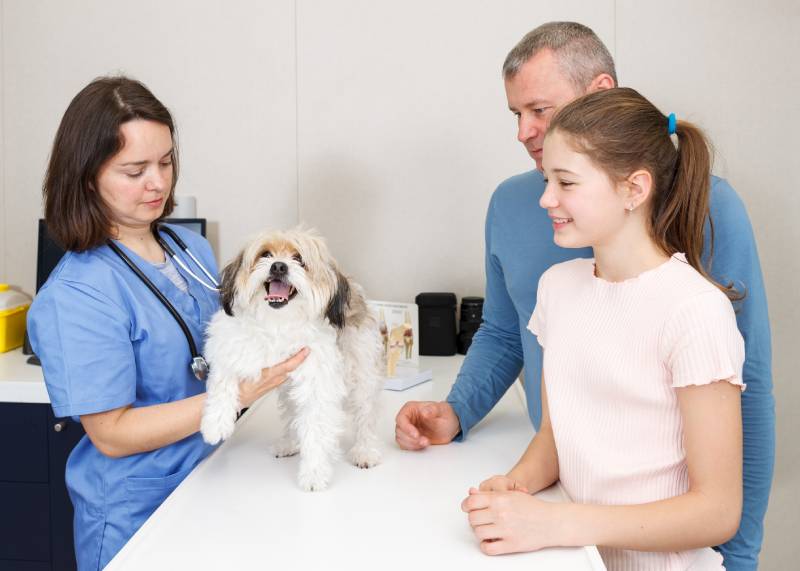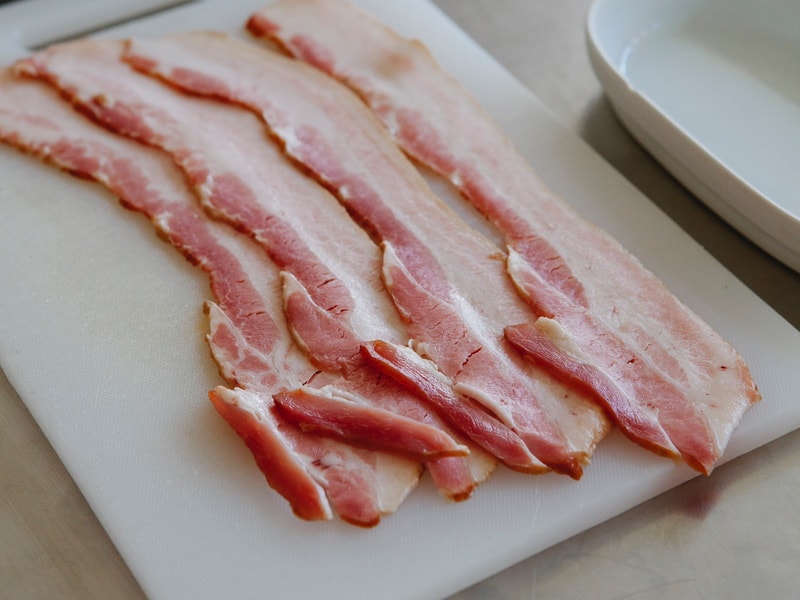
Click to Skip Ahead
Most people enjoy a bit of bacon on their sandwich, with eggs, on a pizza, or in a pasta dish, knowing very well that it’s not the healthiest meat to indulge in. However, it’s crispy and tasty and hard to resist for many people. As much as your dog may enjoy the smell of sizzling bacon in the morning, it’s not a good idea to share some with them, even though they technically can eat it. The truth is that unless eaten cooked, with fat removed, in very tiny quantities on rare occasions, bacon has health risks for your dog.
Thankfully, bacon isn’t toxic to dogs, and you don’t need to rush them off to the vet if they munched down a strip or two behind your back. However, it is not recommended to add it to your dog’s diet. If you need more convincing as to why your dog should swap bacon out for a healthier option, keep reading.
Why Is Bacon Bad for Dogs?
Bacon is a very fatty meat and is often cooked in oil. Foods that are very fatty can cause pancreatitis in dogs. If your dog has pancreatitis, it’s important to get it treated early for the best prognosis. Signs of this condition are vomiting, diarrhea, abdominal pain, and a loss of appetite. Over time, pancreatitis can destroy the insulin-secreting cells in the pancreas leading to diabetes.
When bacon is cooked at high temperatures heterocyclic amines form in the bacon, which have the potential to cause cancer.
Bacon is also high in calories, which can contribute to obesity if eaten often. Obesity can shorten your dog’s life by around 1-2 years. It’s a serious condition that can increase the risk of health issues, such as hypertension, diabetes, cancer, joint issues, and heart disease.

Is It Nutritious?
Bacon is a pork product, and is a protein, although, there are much healthier protein options for your dog. Bacon does contain a few vitamins, minerals, iron, magnesium, potassium, and zinc.
Bacon won’t offer your dog any additional nutrients that they don’t get from quality dog food and the negatives far outweigh the positives. Leaner alternatives include cooked chicken or turkey breast which are safe for most dogs although dogs with food allergies may react to them.
What About Raw Bacon?

Although raw bacon hasn’t undergone high temperatures to get it crispy and is free from cooking oil, it is still a highly processed, fatty meat that won’t do much good for your dog’s health. In fact, raw bacon has risks of its own.
Raw bacon runs the risk of being contaminated with parasites, which will make your dog very sick if they eat it and become infected. Trichinella spiralis, which is also known as “pork worm,” can infect your dog and cause vomiting, diarrhea, muscle pain, and inflammation. Listeria monocytogenes and Salmonella are bacteria in raw meat that can make your dog sick.
Conclusion
Dogs really shouldn’t eat bacon as it comes with risks, whether given cooked or raw. Pork bacon is high in fat which can affect your dog’s health negatively. Giving your dog raw bacon has its risks, too, because it could be contaminated with harmful bacteria or worms that will make your dog very sick. While your dog’s mouth may be watering for a bit of sizzling bacon, they are better off getting a healthier alternative.
Featured Image Credit: Artit Wongpradu, Shutterstock








